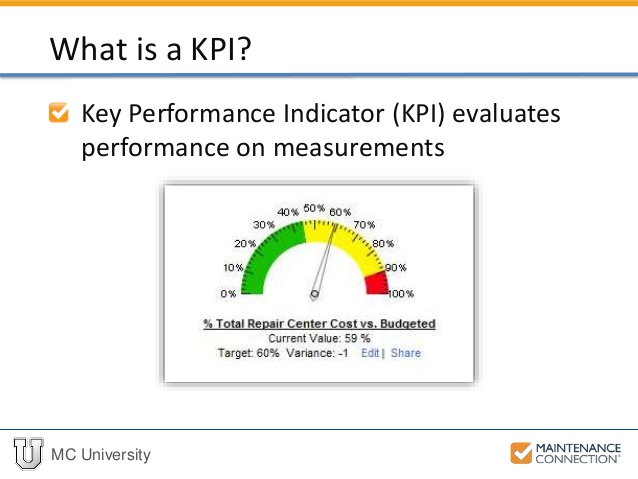.
When you start an SEO campaign for a website, eventually you will realize you need some sort of measure to check your performance. Certain fussy clients who can’t quite see the impact of your SEO campaign request progress reports and performance website analysis. So how do you illustrate your success to them?. Or what means can you use to check and measure what difference your SEO activities are making?
It all boils down to one thing: You’ve got to keep track of what you are doing. There are lots of elements you need to track on but where do you start? A successful campaign uses a control system to measure whether your SEO campaign delivers results. KPIs are one of them.
Read on to find out what are KPIs in SEO and some of the metrics that actually give you insights into where you have reached along your goal path. Besides, analyzing your goal outreach, KPIs help inefficient reporting, improved performance and client satisfaction.
What is a KPI?

KPI is an abbreviation for “Key Performance Indicator”.
KPI is a metric that is used to ascertain your actual performance against your business objectives.
So, in Search Engine Optimization (SEO), KPIs are metrics used to measure your performance against your SEO objectives, which could be ranked number 1 for the different business keywords on Google, increasing the time spent on the site, getting more conversions and sales or building your subscriber list.
Metrics could either be expressed in numbers or in ratios (percentages). So we actually have “number metrics” and “ratio metrics”.
Pageviews, the number of visitors to a certain page in a given period, number of sessions are number metrics. Whereas, bounce rates, conversion rates are ratio metrics as they are represented in percentages or ratios.
So What’s the Difference between a KPI and a Metric?
Just the context. Basically, metrics are just a value of some sort. It can be the number of page views, unique visitors, or conversion rates. But KPI adds a business value to that metric.
KPI is whether the metric is changing over time and whether it’s increasing or decreasing and in what direction.
So generally, a metric becomes a KPI when it impacts your SEO Campaign significantly. You can greatly increase the conversion rate on a website by optimizing the site for keywords, good design, and so on.
How to Find Your Relevant KPIs For an SEO Campaign – KPIs in SEO
To precisely quantify your SEO success, decide what you are really trying to achieve from your SEO campaigns. How do you want the end result to look like?
1. First, identify what the client’s business is about and its specific objectives. It can be increase in conversions or an increase in the number of orders. Also do a competition analysis on the relevant keywords. It’s because a higher competition can take a long time and requires larger work volume before you actually start delivering results.
2. Translate those specific objectives into measurable goals which can be expressed in numbers or percentages.
3. Tie your KPIs with these goals.
For instance, your client’s goal maybe a 10% increase in net sales for the next 3 months. Then your KPI is the net increase in the conversion rate for the website for that period.
If your client is a publisher or a blogger whose main source of income is from the Adsense Ads displayed across the site, then the relevant KPI may be “pageviews”.
If you are unsure as to whether a metric translates to a relevant KPI, measure its impact on the client’s business. It can be an increase in sales (conversions), income or subscriptions.
If a significant increase or decrease in a metric causes a corresponding increase or decrease in costs, revenue or impact the cashflow of the client’s business, then consider that metric a KPI.
Universal SEO KPIs
As your clientele expands, the number of performance reports you to have to create also increases. Consequently, your headache can soar too! So here are a few universal KPIs to make your life simpler. These KPIs can easily be measured using Google Analytics Dashboard for the website, Google Search Console, Moz OSE, and Alexa Ranking tool.
We have categorized the KPIs for SEO into four:
- Awareness: How is your site performing in terms of SEO? How much have the rankings increased for the keywords in a certain period, say 3 months?
- Content Performance: Are people visiting your site consuming your content?
- Engagement
- Conversions
KPIs for Measuring SEO Performance/ Website Awareness on Google
- Ranking changes for the marketable keywords (Keywords that aid in conversion)
- Ranking changes for secondary keywords (Keywords that bring traffic but doesn’t help that much in converting)
- Increase in organic traffic (number of clicks)
- Number of impressions
- Increase in brand search traffic: Brand search traffic comes through a search in which the keyword is your brand name
- Changes in Domain Authority (DA) and Page Authority (PA)
KPIs for Measuring Content Performance
- Number of Page Views
- Increase in number of sessions, unique sessions
- Percentage of Returning Visitors
KPIs for Measuring Engagement
- The average number of pages per session
- Bounce Rates
- Average session duration
- Average Time Spent on a particular page
- Social Action was taken, such as a Twitter share or a Facebook Like
KPIs for Measuring Leads and Conversions
Leads and conversions on a website can be tracked by adding the relevant landing page for “Goal Tracking” on Google Analytics.
- For an E-commerce Website: If you add the shopping cart page under “Goals” in Google Analytics, you can track the number of times an item was added to the shopping cart. If the item proceeded to the “Payment” page, it is a conversion. If the item was added to the shopping cart but no further action was taken, it was just a lead but not a conversion. Herein, you can suggest factors for converting those leads into customers.
- For a Service Website: The “goal” can either be a visit to the Contact page, the Pricing page, or filling out an inquiry form. The number of people visiting the Contact page or filling the form is termed as a conversion KPI for the website of a service company.
- For an Adsense Publisher: The conversion will be the number of clicks on the ads displayed on the publisher’s website.
- For a Blogger: The increase in newsletter signups, the number of ebooks or PDFs downloaded from the website, or the number of subscribers would be a conversion KPI for a blogger or a news website.
SEO is a never-ending process. The algorithms change, the number of competitors change and more and more clients come in requiring digital marketers to monitor campaigns on a continual basis. Being digital marketers and SEOs, we identify those areas of the site which can be improved more.
KPIs are a huge part of SEO and can give you suggestions as to how you can improve those areas on the website and optimize it for conversions. What worked in favor of SEO before doesn’t anymore. Google has evolved the job of an SEO professional a lot and all of this means that it’s a bit harder to prove the ROI to your clients. These days, reporting has a bigger value attached to it. It can help you perform great and also is a means to make your client realize the true worth of your SEO campaign.
KPIs help in managing your campaigns better, which in turn converts you from a simple SEO professional to a strategic business partner who clearly provides value in all your services. Of course, each business is different and can have its own KPIs, in addition to the ones above.
What set of KPIs do you use to measure your success?






